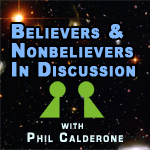If you can’t convince them, confuse them.
-Harry S Truman
Atheism is commonly attacked as being a religion, a worldview with faith-based presuppositions. The label is applied by theists in an attempt to deflect arguments against their own religion. This is a counterattack from a weakened position (see Upping the Anti Ante), a Tu Quoquo fallacy (latin for “you also”), in which one accuses the other of what they are being accused—in this case unsubstantiated belief.
The tactic has gotten more slippery of late so let’s give it more nuanced consideration. First the definition from the Oxford English Dictionary:
Religion
1. A particular system of faith and worship:
the world’s great religions
2. A pursuit or interest to which someone ascribes supreme importance:
consumerism is the new religion
You may notice that this definition omits a reference to deity, an element that many dictionaries include. This is a good demonstration that the meanings of words differ depending on source and usage. Further, definitions shift over time when usage shifts.
Oxford’s first meaning sites faith and worship. Atheists decline these labels, holding that their conclusion is based on evidence and reason. Theists counter that it takes more faith to not believe in God than to believe. To parse this debate would require a breakdown of the meanings of faith and worship. See where this is going?
Next meaning, religion can be just an interest of importance. It’s peculiar that Oxford uses the adjective supreme, a word commonly associated with deity. Is great interest in vegetarianism a religion? Perhaps not if it’s not the most important interest in your life…unless it is. What if you have two great life-consuming passions, theatre and poetry. Is the practice of these arts religion? Can you have two supreme interests, more than one true religion? Is the celebration of one sacrilegious to the other?
By default, by deceit, or perhaps misdirecting intent of the accusers we are led to being unable to answer the original question. Is atheism a religion? It depends who you ask. People can give different answers and apparently all can be right. If not they can certainly claim have the right answer backed up with some form of logic. Words only have the meaning in the way they are used. Everyone wins…but then everyone loses. Why do we even bother with language?
This reminds me of the presupposition apologist tactic, trying to get their opponent to admit to possibly being wrong about anything they know (note, possibly not probably, thus the fallacy trap). They never mention to onlookers that if any person can’t be one hundred percent sure of their thoughts (not aware of living in the Matrix, etc), then nobody can—including themselves. This disarming of both sides is pointless and deceptive, as is slipperiness and shifting of definitions within an argument.
So I’ll examine the posing of the question itself. Why would a theist prefer that an atheist be engaging in a religion, be it science or the not-doing of a thing? Could it be a defensive attempt to lower their opponent to the same debased position, that of placing a leap of faith on par with a conclusion derived from evidence?
What happens if government legally deems atheism to be a religion? First off, tax-exemption for all atheist groups. Is that your goal, theists? Perhaps so as a tactic to counter atheist’s advocacy for religions to lose their historical exemption. Better to let weeds grow than pull out the monetary garden, eh? We are already living with the awarding of exemption to organized cults with all the abuse that has yielded, in particular on property accumulation. And then what—tax exemption for bowling leagues? Or is that hobby deemed not “supreme” enough in interest intensity? Who decides where that line is drawn?
So let’s dump this ridiculous gameplay. How can we know if atheism is a religion? If you can’t handle the reality, apply the walks-like-a-duck common sense test.
Christianity is a religion. Islam is a religion. Stamp collecting is a hobby. Being a Star Wars super-fan is an enjoyable obsession. Buddhism is a philosophy that many practice as a religion. Mormonism is a scam that evolved into a religion. And a mallard is a duck.
Atheism is a disbelief. Look it up.



